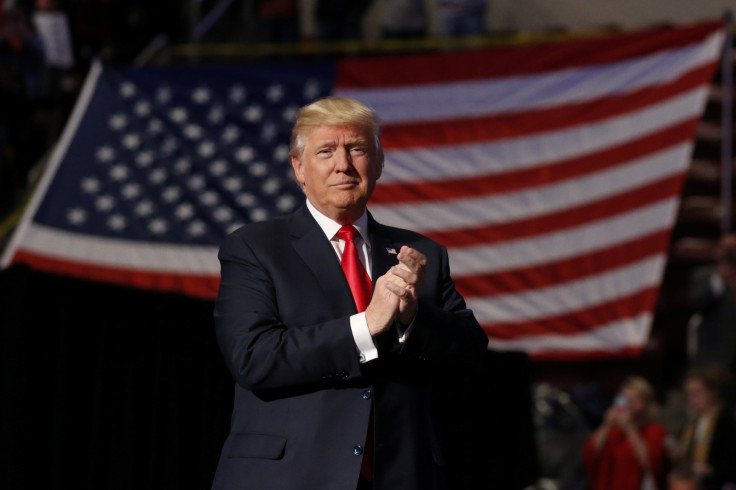Think this year was eventful? Here is what is coming up in 2017
We could do with a quiet year - but perish the thought in the next 12 months.

There is no question that 2016 has been a cataclysmic year for politics, with Brexit, the rise of the alt-right, the fall of the left and a Donald Trump victory.
At first glance, 2017 appears to be less politically-charged - but this is not the case. Trump will be sworn in as the 45th President of the United States, Britain's Supreme Court will deliver its judgement on leaving the European Union and several European general elections will either make - or break - the far right.
Donald Trump will be inaugurated
Ten weeks after Trump claimed victory in the US election, the polarising billionaire will finally replace Barack Obama in the White House. At noon local time on 20 January, Trump will take the Oath of Office and be sworn in as America's next president, with Mike Pence by his side as Vice President.
Afterwards, Trump will deliver his inaugural address - which according to the Washington Post, will take inspiration from his predecessors Ronald Reagan and JFK. As per tradition, the inauguration will feature performances from big name artists, but the entertainers' roster for Trump is reportedly thin on the ground - particularly when compared to the likes of Beyonce and Aretha Franklin, who performed at Obama's inauguration.
The UK's Supreme Court will deliver judgement on Brexit
In December, Britain's most senior judges begun a four-day hearing to decide whether the parliament or the government had the authority to start the process of leaving the European Union, in one of the most significant constitutional battles in decades. The verdict is expected in early January.
Philip Hammond's first Budget
The new Chancellor delivered his first and final Autumn Statement in November, abandoning George Osborne's "Long Term Economic Plan" mantra, promising tax cuts for big business and omitting social care and healthcare entirely, despite warnings that cuts to council budgets is eroding the sector. Britain will find out more about Hammond's plan in his budget on 8 March.

A general election will take place in the Netherlands
In March, the Dutch will head to the polls for a general election and there are fears that one of the most liberal countries in Europe may turn to the right. Geert Wilders, a Dutch far-right, anti-Islam and anti-EU political leader who was convicted of inciting discrimination against Dutch Moroccans in December, has been leading the polls with just three months to go before the election.
Britain may trigger Article 50
Triggering Article 50 would kick-start the negotiation process needed for Britain to formally leave the European Union. In December, the Supreme Court hearing considered the kind of legislation required to do so - but regardless of the outcome in early January, it seems likely that Theresa May will begin the Brexit process in March.
France will elect its new president
The election of Marine le Pen, the leader of the French right-wing National Front party, would be yet another political earthquake for Europe - and if the recent polls are anything to go by, this is a distinct possibility. One of the buzzwords of 2016, populism has facilitated the rise of le Pen and her party, which reiterates the anti-immigration rhetoric and "Islamification" warnings of Donald Trump's presidential campaign. The first round of the election will take place on 23 April and the second on 7 May.
Germany will vote too
Angela Merkel has announced she will run for a fourth term in Germany's October general elections, and if she wins, she will be one of the longest-serving leaders of postwar Germany. Although tipped to win, she faces a stiff opposition from the right-wing populist Alternative for Germany (AfD) party, who were quick to blame the Chancellor and her immigration policies for the attack at the Christmas market in Berlin days before Christmas.
The G20 summit will take place in Hamburg
The 12th meeting of the G20 — the international forum where the world's 20 largest economies come together — will take place on 7 and 8 July.
© Copyright IBTimes 2025. All rights reserved.




















